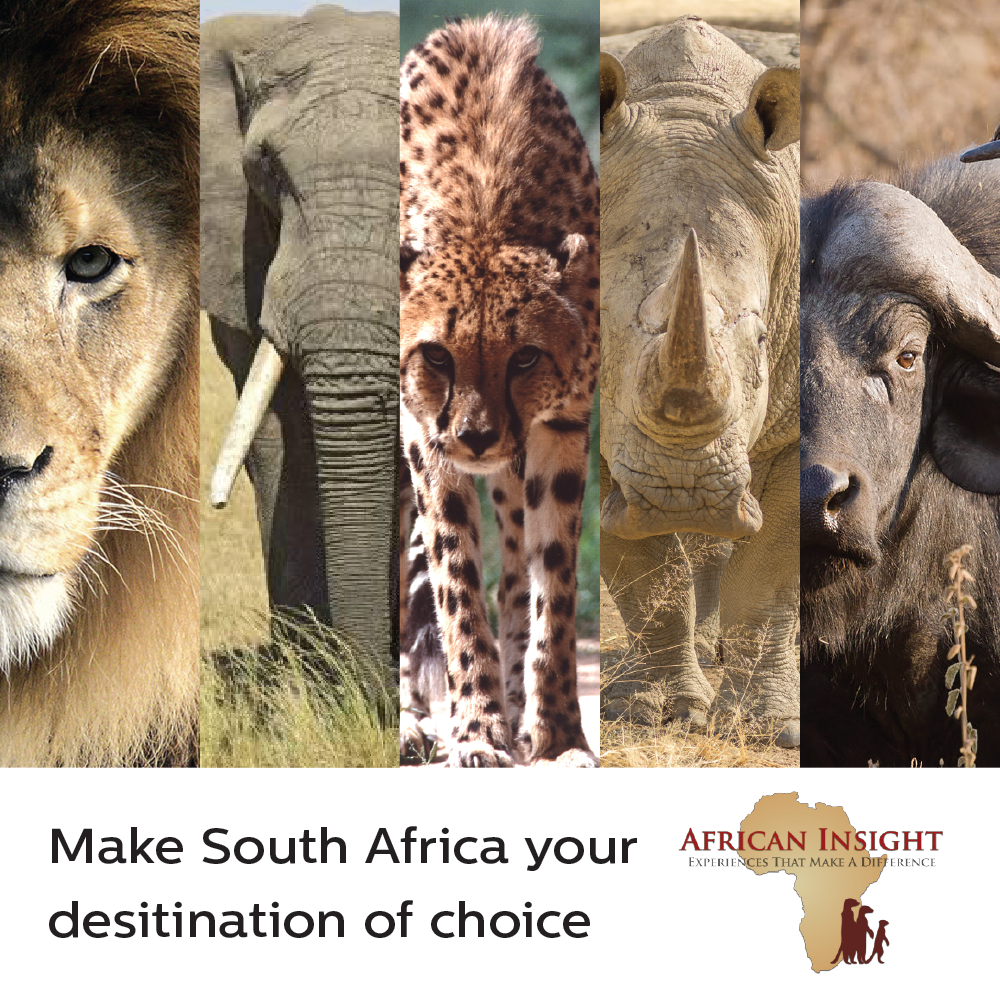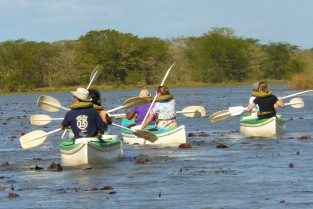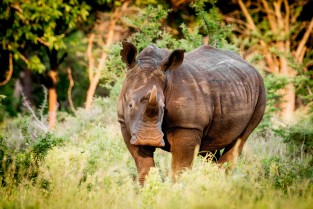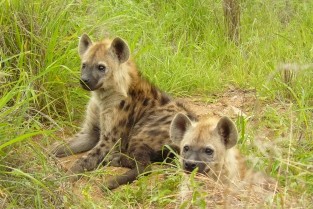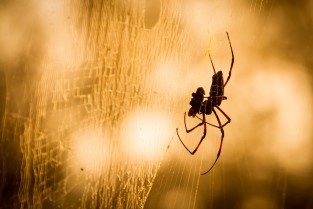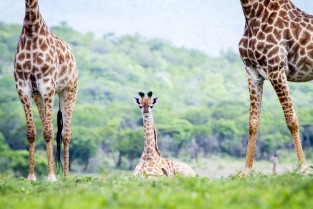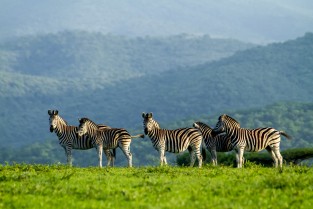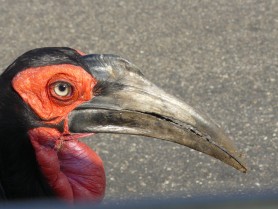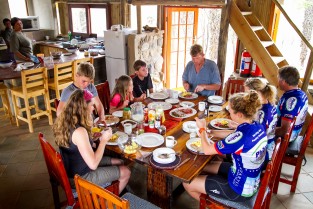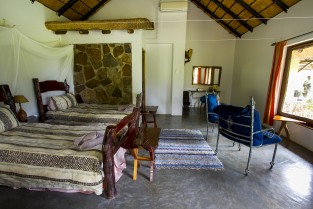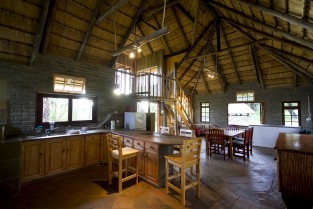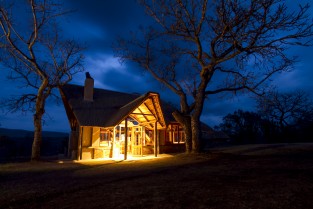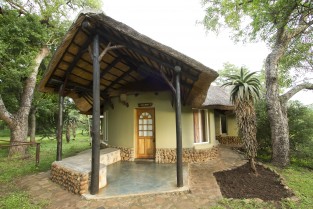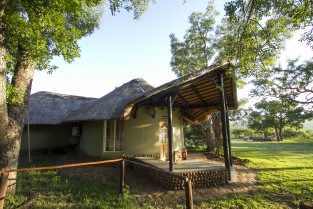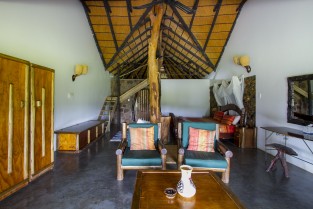African Insight
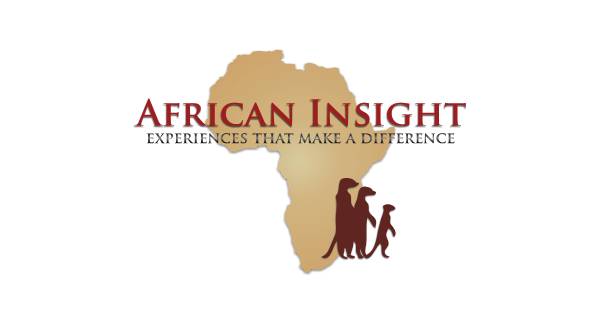
| Monday | 07:30 am - 04:30 pm |
|
| Tuesday | 07:30 am - 04:30 pm |
|
| Wednesday | 07:30 am - 04:30 pm |
|
| Thursday | 07:30 am - 04:30 pm |
|
| Friday | 07:30 am - 04:30 pm |
|
| Saturday | Closed |
|
| Sunday | Closed |
|
| Public Holidays | Closed |
|
NEWS BLOG
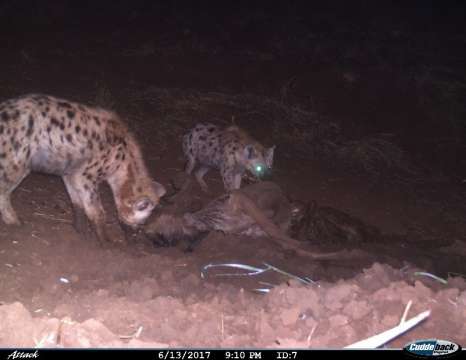
I spy with my little eye…….oh my word it’s a spotted hyena
20 July 2017 by Charlotte Cornwallis
When you live in the bush, you learn to read signs and predict animal behaviour, well at least you think you do. Let’s be honest, we all think animals are predictable but they constantly prove us wrong. When you get it right, the reward is not only satisfying but also a little magical.
After a standard road clearing exercise with the interns, we decided to take a drive by Bass Dam, a popular water hole frequented by antelope, wildebeest, giraffe, elephant and sometimes leopard. It was the heat of the day so we weren’t expecting to see much but what we found started us off on a journey of discovery and decision making! By the dam was a carcass, a young wildebeest. It was unclear how this animal had met its end, various theories being put forward by us all based on the circumstances we found. One thing was clear, something had already enjoyed an appetizer, the question was what? We all start scouring the ground searching for tracks and signs as to what’s preceded our visit. Tracks were scrutinized and we all decided there was definitely signs of leopard on site already.

Having education and research embedded in our ethos we all decided that a camera trap experiment was required and we needed to prep quickly to reduce interference with the area and maximise results. Back at camp the team assemble all the camera traps, straps and SD cards.
Believing we had thought of everything we set off, back to the dam with excitement and vigour. Arriving at the dam we assessed the best sites for the traps, where will they be safest and least likely to be stolen by naughty nocturnal beasts! As the carcass was by water there was a major risk involved, camera traps are essential tools to our interns and we didn’t want the experiment to ultimately fail by losing valuable tools. Suitable poles were found (because we forgot those when we left camp), embedded in the ground, cemented with rocks and mud and placed all around the carcass. Four camera traps were securely tied to the poles, ready to capture any action. Happy that we’d done a good job and the risk was minimized, we left the area with anticipation in our bones.

The following morning, the team were eager to see the results of their efforts. Back to the dam, with a silent expectation from each of us, what could we have caught on camera? A leopard, spotted hyena, jackal? It was almost nail biting intrepidation and the 15 minute journey felt like eons! On arrival at the site, only 3 out of the 4 cameras were still there. No sign whatsoever of the fourth camera, except that the pole it was on had been dragged up a hill – but no sign of the camera. The team exchanged the SD cards in the remaining traps and then proceeded to look for the missing camera, but to no avail. Abandoning their search, they returned to the office to review their footage. All huddled around one laptop, the first few images produced some giggles and squeals. If anyone knows how camera traps work they start recording the minute you set them so inevitably the person setting them up gets some interesting selfies for us all to enjoy! Then the exciting stuff appeared – boom, a massive male leopard was first to the carcass. What an impressive boy he was. A thick neck and solid frame, easily identifiable as one of the resident males at Somkhanda Game Reserve. His visit coincided with the sun going down, so quite early for a nocturnal animal. This linked in with our theory that the leopard was actually returning to his own kill due to being unable to drag it out of the mud and carry it up a tree, which is what you’d normally expect. Like I say, this was one theory and there were plenty more voiced which were just as feasible!
After identifying the leopard, we progressed through other images captured by the traps. At midnight another predator appeared, this time a pair of spotted hyenas were captured keenly checking out their fortuitous meal and even giving us a good selfie at the same time. Various images of them were captured from midnight through to 6am the following morning, so they most definitely filled their boots on night one. The team were abounding with excitement and joy at their success, but what now? This is when the whole “predicting animal behavior” comes into play. The leopard was first, then the spotted hyenas found the kill. Now that the hyenas were aware of the carcass, the theory was they’d be back for more; they had to be right? After some deliberation and theory exchanges, the team decided a “spotted hyena stakeout” was in order. Everyone went to get layers to prepare for being out in the bush at night, spotlights and cameras, food and water – an expedition of patience was about to commence with a major prize if we were right.
We arrived back at the dam at 5pm, just before the sun dipped beyond the horizon. We positioned ourselves upwind to minimize our presence being felt (or more accurately smelt!) Then it was a matter of patience. After an hour of darkness the bush was quiet, no signs of visitors, just us and the fiery necked nightjars’ sweet song penetrating the silent night.
As entertainment and to help pass the time we started up a game of “I spy”. Right in the middle of one of our interns saying “I spy with my little eye….” she was rudely interrupted by another intern saying “oh my word there’s a spotted hyena”. Everyone looked in the direction of our spotlight and there he was, a sub-adult male hyena walking very cautiously towards the carcass. He seemed wary and skittish so we were silent, not wanting to impact his visit to his meal. The car was silent, in fact I’m pretty sure every one of us was holding our breath in an attempt at not being discovered. He was about 30 metres from us and wasn’t deterred by the spotlight at all. He began to pull at the carcass but then was startled by something and walked back up the hill. Luckily for us, he decided to have a snooze rather than disappear but we had to reposition to get a better look. Again, the noise of the game viewer starting wasn’t received well by the hyena but once we had turned off again and sat in silence this beautiful boy decided to lie down and just take a quick nap while we looked on in amazement. We began to search for the second hyena, knowing there were a pair at the carcass the night before, but were unable to see any partner in crime.
.jpg)

On Somkhanda Game Reserve, you can often hear the calls of the hyena at night but so rarely get to see them. This was such an opportune sighting, with as much planning and animal behavior prediction built into it as possible. It worked, we got some amazing photos from the camera traps which will help us to develop an ID kit for the spotted hyena on the reserve, as well as personally observe one of the most dangerous predators in Africa in the wild. A moment to savour for everyone and a story for the dinner table, without a doubt. It’s adventures like these that make Africa a part of your soul.
REVIEWS
PHOTO GALLERY
ABOUT US
African Insight is the first South African tour operator to fully embrace the principles of Responsible Tourism, which underpins all our operations and business practices.
We are constantly developing creative new adventure travel opportunities in South Africa to achieve our mission. We work in partnership with a variety of established credible partners in delivering various aspects of our program.
Our Mission:
To enrich lives by creating unique interactive South African experiences which are fun, affordable, sustainable and promote the diverse Natural, historic and cultural heritage of our country. Our aim is to facilitate and uphold the objectives of Responsible Tourism through the establishment of vital partnerships, which provide benefit to local communities and support projects involved in environmental and biodiversity conservation
We are committed to tourism which does not impact negatively either on local people and/or fragile ecosystems, but instead, inspires our travellers to respect and conserve our planet for future generations.
Director and owner, Andrew Anderson, has been working in the professional conservation and tourism industry since 1986. Using his professional qualification in nature conservation he worked in Zululand for the well-known and respected Natal Parks Board (Now KZN wildlife) for 11 years, before starting his own business in wildlife and environmental travel.
The success of our business is related to how we connect with people. Our entire team of sales and travel consultants, administration staff and our guides share the African Insight vision, but their greatest strength is their ability to reach out to people and share with them their passion for South Africa’s people, wildlife and wilderness areas. Our guides are the backbone of our business and are all highly experienced and qualified.
African Insight is the ideal travel partner in two core markets; Academic field trips for tertiary education institutions and Youth Development Programmes for secondary schools, on a fully escorted, guided basis.
South Africa is an amazing location for educational field trips, particularly those based on personal developments, adventurous activities, wildlife, biodiversity, conservation, environmental studies, agricultural, anthropology, archaeology, developing world economies and sustainable tourism, to name a few.
The combination of Africa’s best wildlife destinations, oldest wilderness areas, vast open spaces, diverse landscapes, vibrant traditional cultures and first world infrastructure, makes South Africa unlike any other African country and creates the opportunity for potentially life changing travel experiences for Students.
Our Aim:
take groups of youngsters on a journey of discovery, which will enrich not only their own lives but those of the communities they meet along the way.
"Truly enjoy the peace of mind that comes with knowing your travel will not negatively impact on the environment or communities."
SERVICES
Adult & Family Travel
Somkhanda Game Reserve
Kudu Bush Lodge:
- Private Camp situated on a prominent ridge in Somkhanda Game Reserve
- Impressive Panoramic views across the valley and hills beyond
- Consists of 2 separate units with a deluxe / family suite and two standard ensuite rooms making six rooms in total
- Rooms and camp are serviced on a daily basis and each has a bar fridge with tea / coffee making facilities
- Total capacity of 12 adults and 4 children
- Can be self-catered or full board basis
- The camp has a swimming pool
Scotia Camp Site:
- Private Campsite for up to 10 tents
- Located in a secluded location in the reserve
- Serviced with two hot showers and two toilets
- Accessible only by 4x4
- Can be booked on the site only or as a fully equipped mobile safari camp with the added option of full catering
Somkhanda Academy:
Somkhanda is home to populations of both black and white rhino and has just seen the reintroduction of Cape buffalo and elephants. It has a comprehensive range of all the large mammals that historically occurred in this region, including some top predators such as elusive leopards, hyena and wild dog. This unique situation affords the opportunity for Somkhanda Academy to offer internships and volunteer opportunities in South Africa where you can get involved in the reserve’s wildlife and environmental management, ecological research and monitoring programs.
We Offer:
- Science on Safari Model with the objective of developing a range of wildlife experiences that adds to financial sustainability of the reserve
- Provide vital scientific data of the fauna and flora
- Intern and Volunteer Programmes for those who are considering a career in Conservation Management, Ecological Research and Hospitality and Eco-tourism
Youth Travel
The aim of our programs is to take groups of youngsters on a journey of discovery, which will enrich not only their own lives but will potentially make a difference to the lives of hundreds of rural South African school children long after they have left.
A selection of potentially life-changing experiences can be pieced together in a “seamless” South African adventure. The modules that follow offer group leaders flexibility of tailor making a uniquely South African life experience that matches the group's aims and objectives.
Minimum requirements for field trips:
- All participants are 15 years or older
- Itineraries are for a minimum of 10 days groups consist of a minimum of 10 participants
- Groups are accompanied by at least 1 adult per 10 students
- All participants agree to sign a responsible tourism code of conduct
- Proof of travel insurance before arrival
Academic Field Trips
African Insight has been providing academic field trips to South Africa since 1999, and many of our partner academic institutions report that these field trips have played a significant role in increasing recruitment onto courses as well as substantially improving student retention on courses.
We provide a complete service for every step of your academic field trip including:
- Itinerary planning
- Flights
- Administration of travel documentation
- Payment Schedules
- Travel Insurance
- Preparation for parent meetings
- We also offer Overseas Trip Planning Workshops
Go Wild! Self Drives and Adventure Trips
Travel with African Insight to see Southern Africa through local eyes’ and experience our continent with greater awareness and sensitivity. You will leave knowing that you have made a difference to the people and the places you have visited as well as to yourself.
African Insight has completely dedicated its’ resources to the Principles of Responsible Tourism ensuring that travellers tread lightly and truly enjoy the peace of mind that comes with knowing their holiday will not negatively impact on local communities and environments and will maximise the local economic benefits to the communities and regions visited.
Trips we offer:
- Bush and Beach
- Wild Coast Hike
- Northern Explorer
- Zululand Conservation Experience
DOCUMENTS
MEET THE TEAM

| Gareth Oswin |
| IT Guy |
| 033 330 2269 |
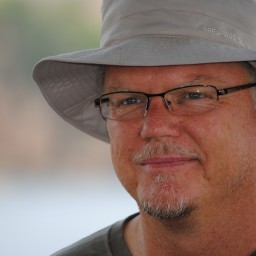
| Mr Andrew Anderson |
| Managing Director |
| 033 330 2269 |
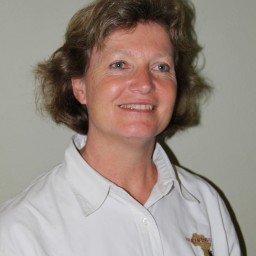
| Susi Anderson |
| HR & Finance |
| 033 330 2269 |
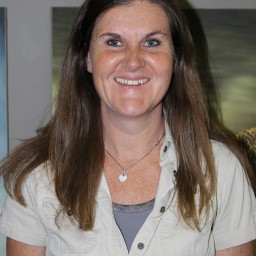
| Lundy Bredberg |
| Groups Consultant |
| 033 330 2269 |
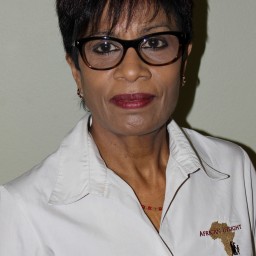
| Lalitha Pillay |
| Administration |
| 033 330 2269 |

| Erica Wilde |
| Self Drive Consultant |
| 033 330 2269 |

| Gwyn Fryer |
| Administration |
| 033 330 2269 |
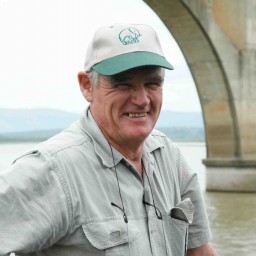
| Ian Thomson |
| Academic Field Trip Manager |
| 033 330 2269 |


